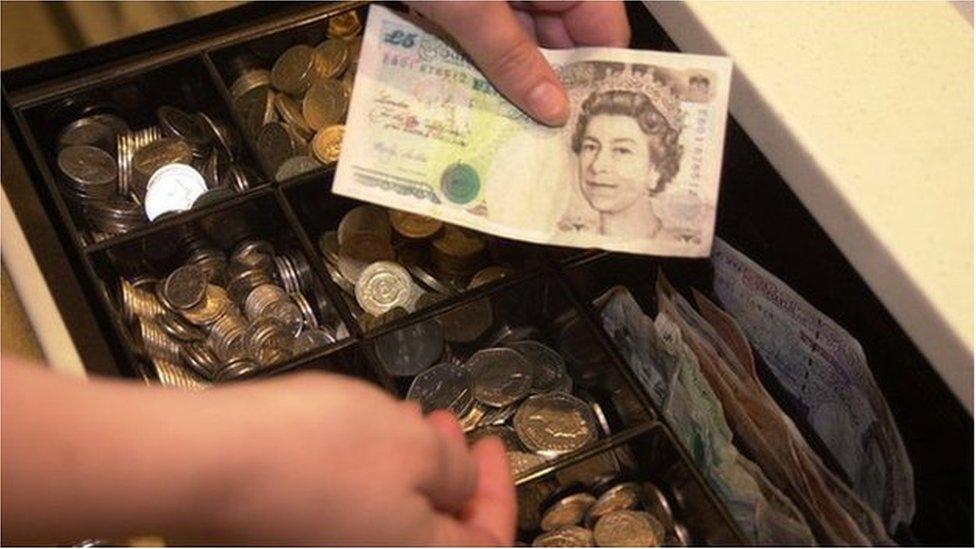Osborne warns of 'dangerous cocktail' of economic risks
- Published
Chancellor George Osborne: "I worry about a creeping complacency"
The UK faces a "cocktail" of serious threats from a slowing global economy as 2016 begins, Chancellor George Osborne has warned.
Speaking in Cardiff, Mr Osborne said this year is likely to be one of the toughest since the financial crisis.
He told business leaders that far from "mission accomplished" on the economy, "2016 is the year of mission critical".
His message is in stark contrast to the positive tone of his Autumn Statement, when he said the UK was "growing fast".
Earlier the chancellor told BBC Radio 4's Today programme that the Autumn Statement had put in place a four-year plan to restore the UK's public finances, and make the economy more productive, with businesses more competitive so they could create jobs.
"It is precisely because we live in an uncertain world. It is precisely because we have not abolished boom and bust as a nation, that you need to take these steps, difficult steps, and I need to go explaining to the public, that the difficult times aren't over, we have got to go on making the difficult decisions, precisely so that Britain can continue to enjoy the low unemployment and the rising wages that we see at the moment," Mr Osborne said.
The chancellor's warning came on the same day that China suspended trading on its stock markets after only 15 minutes.
Circuit-breakers triggered the Chinese share suspension following a 7% fall in the country's main index.
Later on Thursday, the Chinese authorities said they were suspending the circuit-breaker system.
The price of a range of key commodities, such as oil, gas and iron ore, has fallen sharply in the past year, a move that indicates weakening demand in the global economy while oil prices hit fresh 11-year lows. earlier on Monday.
But shadow chancellor John McDonnell blamed the government's "failed economic policies" for the threats facing the economy.
"It's a cocktail of his own mixture - failing to invest, failing to rebalance the economy, relying upon consumer debt to boost the economy for an election victory and now we're facing our own lethal cocktail within our own economy," he told the BBC.
"He's getting his excuses in early for the problems that he's caused that will now unfortunately hit upon many families across the country, especially if interest rates are increased during the year."
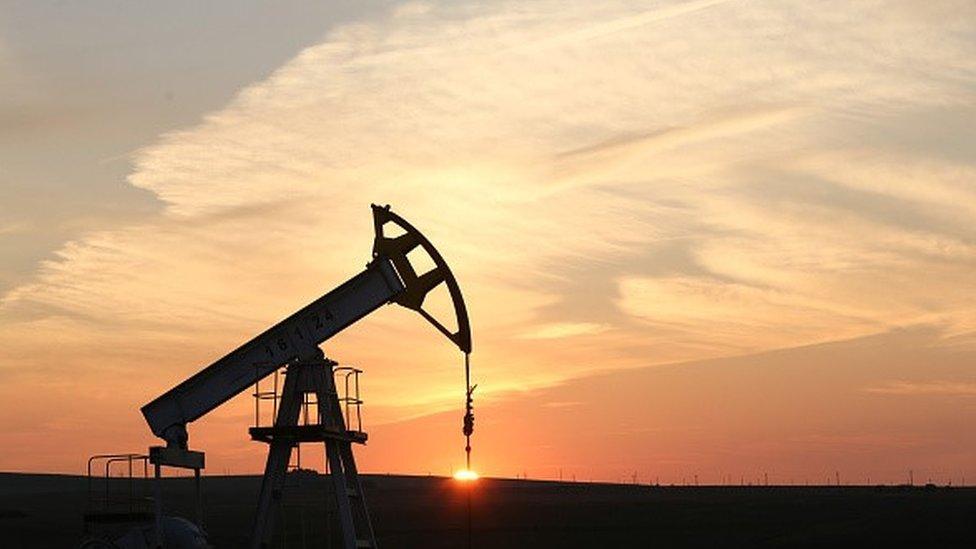
Oil prices have tumbled 70% since June 2014
The chancellor laid out a number of risks that the UK economy faces over the next 12 months in his Cardiff speech.
People must not be "complacent" that the economy is fixed, he said.
Significant challenges - including tension in the Middle East, slowing growth in China and low commodity prices - are all weighing on global confidence, he added.
'New threats'
Mr Osborne told the Today programme the UK's economic recovery was not "a debt-fuelled recovery", citing the support of the governor of the Bank of England in his assessment.
But the chancellor said he feared there was a complacency that appeared to be developing in the UK's national debate.
"You have had people coming on programmes like this saying, 'We've got to spend billions of pounds here or billions of pounds there; the country can afford it,'" Mr Osborne said.
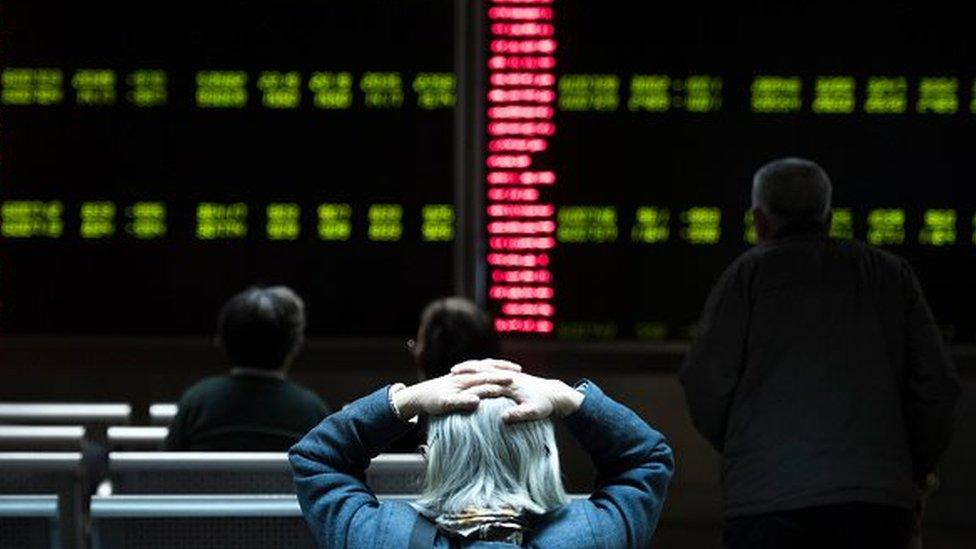
China's stock market was suspended after just 30 minutes - and for the second time this week - as shares plunged 7%.
"All the old habits, all the old habits, all the old bad ways that got Britain into that mess are re-emerging in some of our national debate and I need to remind people that it's a very challenging world out there, that Britain still has big economic problems that it has to fix," he said.
"I am determined to see through the plan that has got the British economy that is in the stronger position that it is in today," he added.
On the domestic front, the first interest rate rise since 2007 could come this year.
Treasury sources pointed out that is not a decision for the chancellor - interest rate rises are a matter for the Bank of England - but there are many homeowners with large mortgages who have never experienced even a small rate rise.
Privately, those close to Mr Osborne have expressed concerns that a rate rise could have an impact on consumer confidence.
But Mr Osborne denied he was putting any pressure on the Bank of England to raise interest rates, adding, "People like Mark Carney would not respond to that pressure."
He added that rising interest rates should be seen as a sign of a strong economy.
"We have to make sure we are ready for whatever the interest rate environment is," Mr Osborne said.
But, he added, if and when interest rates rose, it would be a sign of a stronger economy that was normalising after the financial crisis.
- Published7 January 2016

- Published7 January 2016
- Published4 January 2016
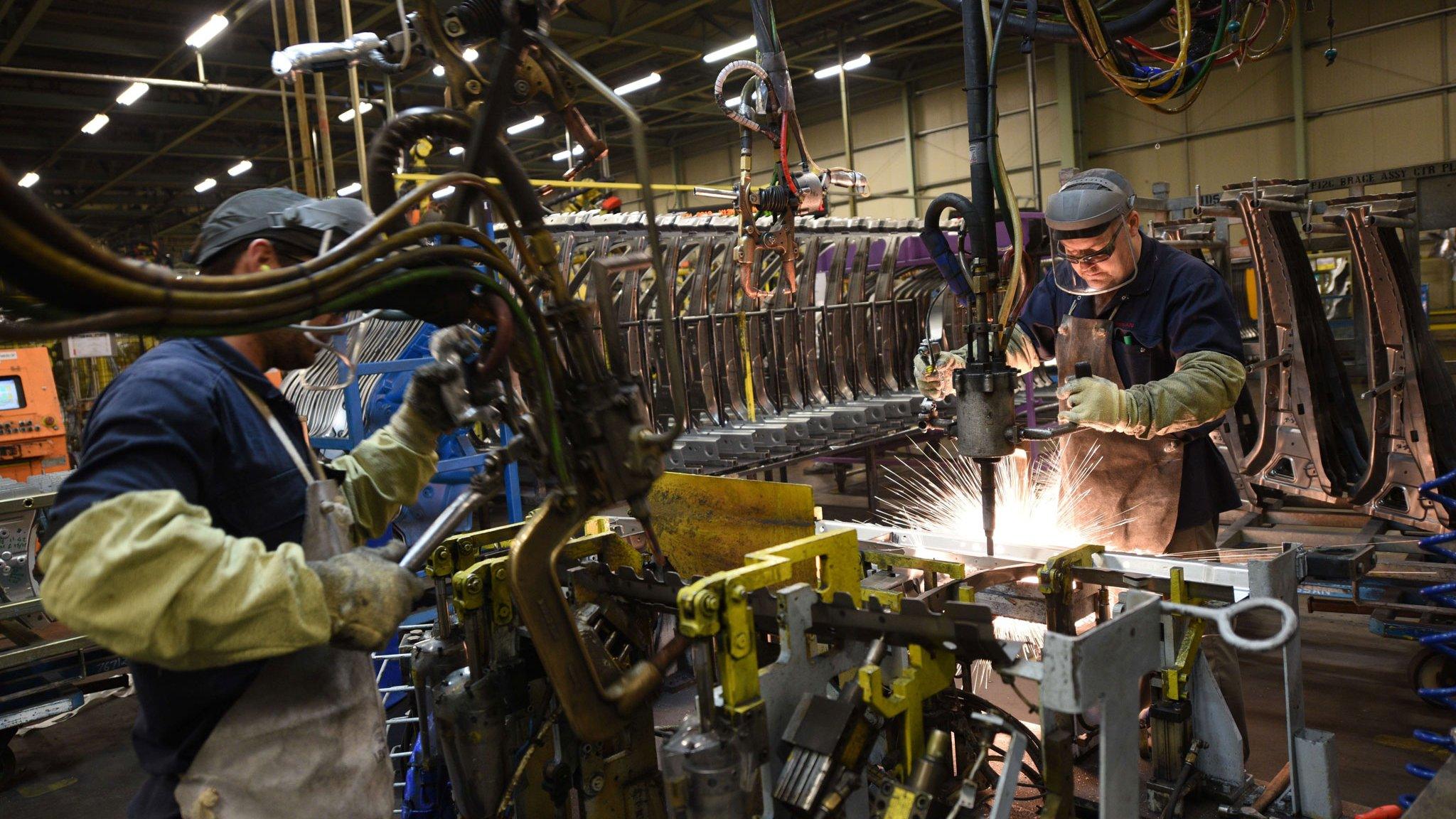
- Published7 January 2016
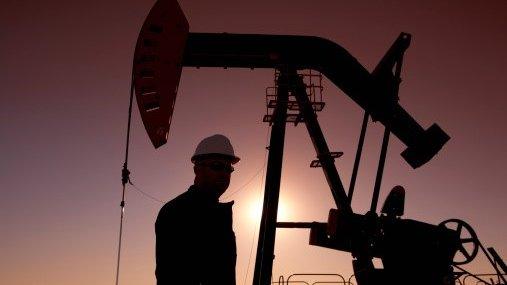
- Published7 January 2016
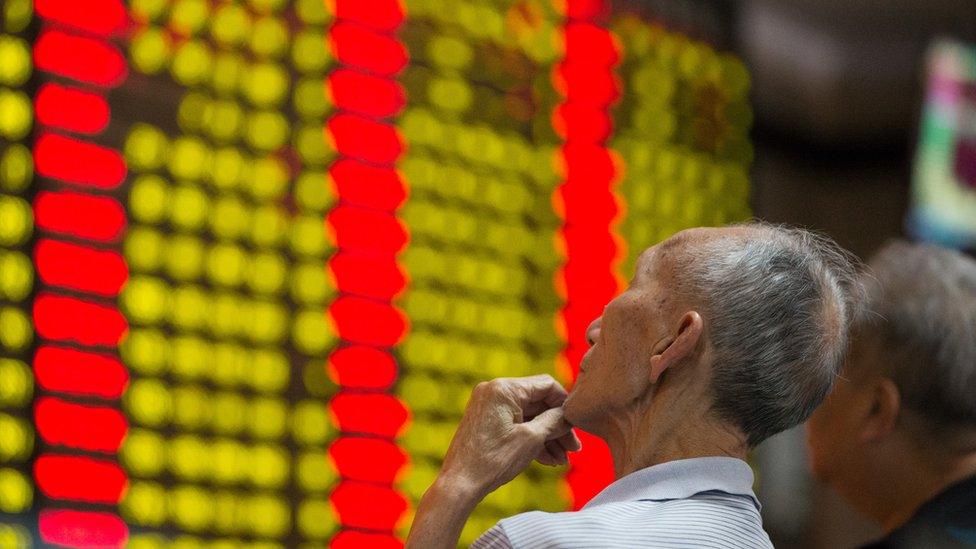
- Published6 January 2016
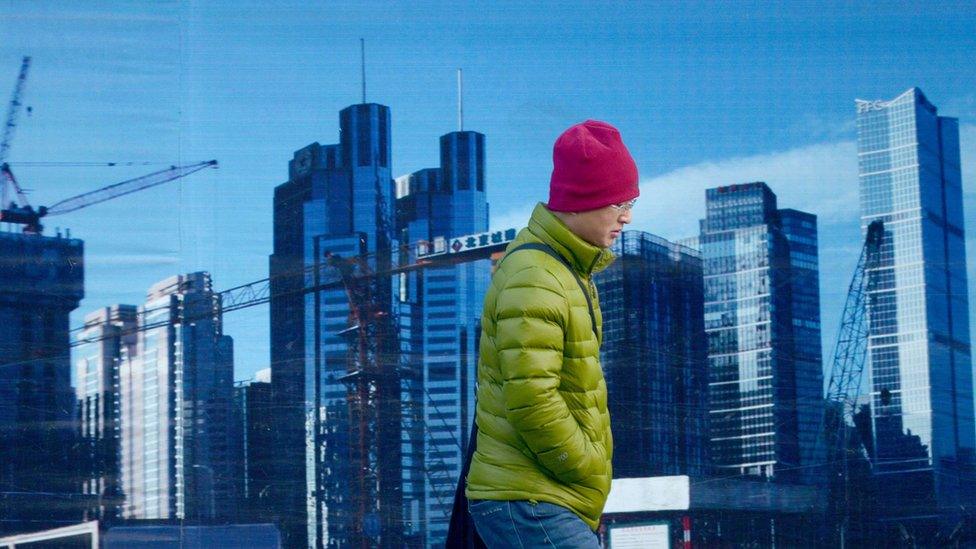
- Published6 January 2016
